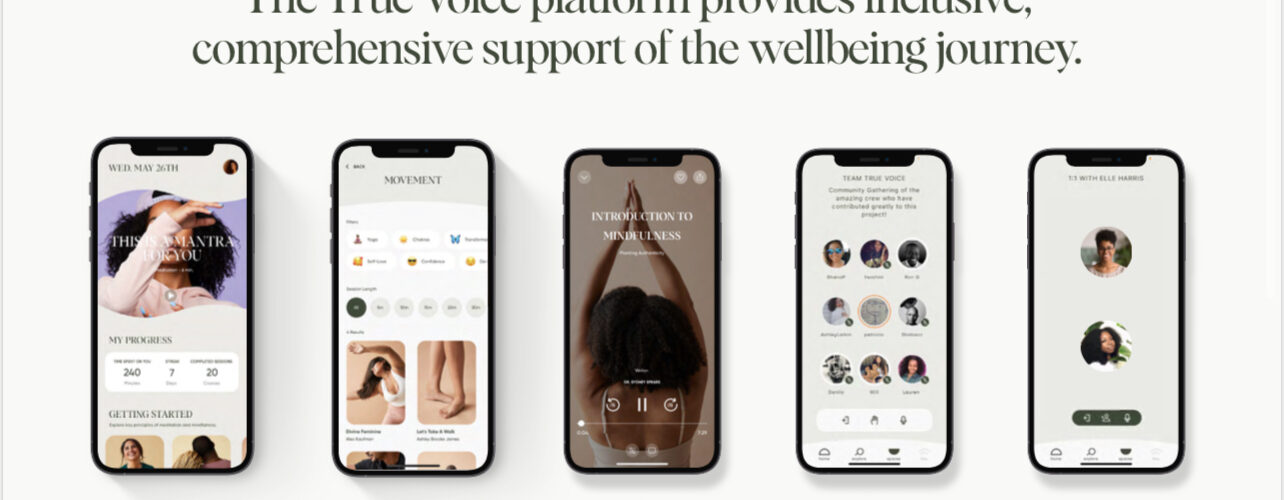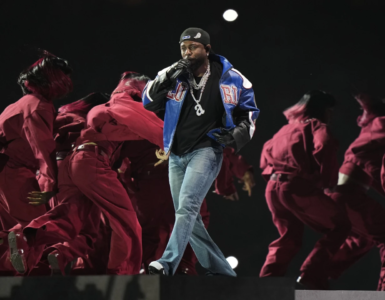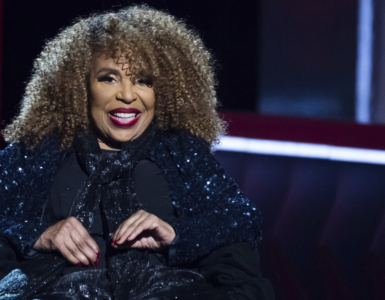Ron Gillyard advances a new way to provide inclusivity through the wellness app, True Voice (Courtesy/ True Voice App)
Are you looking to improve your health? “True Voice” is an app, created by Howard University Alum, Ron Gillyard, that aims to bring wellness throughout his alma mater and beyond.
“True Voice” is an innovative app designed to amplify the voices of people of color by providing a platform for self-expression, community engagement and empowerment. The app offers tools for storytelling, advocacy and connection while aiming to combat systemic inequalities and celebrate cultural identities.
According to Gillyard, the Black-owned company is hoping to reshape wellness by “[building] a brave space where mindfulness, healing, and self-discovery are accessible to all, especially those who are often excluded from traditional wellness spaces.”
This vision stems from a deep understanding of the barriers marginalized communities face when accessing wellness resources. By prioritizing inclusivity, “True Voice” aims to create a supportive environment where individuals can explore mindfulness and healing practices that resonate with their unique experiences and backgrounds.
“We recognized that many wellness apps catered to a narrow demographic and often missed the nuances of culture, identity, and community that are central to healing for so many people,” Gillyard shared. ““True Voice” seeks to change that by offering mindfulness practices that are culturally relevant, inclusive and community-centered.”
The app fosters a supportive space where users can share their experiences, access resources and collaborate on initiatives that promote social justice. Ultimately, “True Voice” seeks to create a vibrant community that uplifts marginalized voices and drives meaningful change.
The photo displays the impact 2020 has made on mental health and what can be done. (Courtesy/ True Voice App)
Gillyard’s vision for “True Voice” extends beyond individual health by aiming to foster a collective journey toward mental well-being. By focusing on accessible mindfulness practices, the app seeks to bridge gaps in wellness resources, particularly for Black and Brown communities.
“We’re not just promoting personal growth,” Gillyard explained. “But also encouraging communal support and understanding. Mindfulness is a tool for empowerment, and when we share that experience, we uplift each other.”
This approach aims to create a supportive network prioritizing mental health and self-care as vital components of community resilience.
“True Voice” is on a mission to create a culture of mindfulness by equipping people with mindfulness tools and inspiring them to adopt their own habitual self-care practices.
“When we cultivate a relationship with mindfulness as a community and collective, we transform the way we do life as a society–bringing in a new wave of freedom, power and presence for us all,” said Gillyard.
As the conversation around mental health continues to evolve, the significance of tailored resources for marginalized communities becomes increasingly apparent. “True Voice” not only addresses the unique challenges these groups face but also champions the importance of creating spaces where users can feel understood and supported. This approach aligns with the broader movement toward inclusivity in wellness, making mental health care more accessible and relevant for everyone.
Isaiah Phillips, the Public Relations Chair of “True Voice,” highlighted the app’s focus on its benefits for Howard students.
““True Voice” stands out as an essential resource for students because it offers a safe, inclusive space specifically designed for members of the Black diaspora,” he said.
Phillips noted how imperative the health of individuals is, emphasizing that “mental, physical, and emotional well-being are more important than ever.”
Recognizing the unique pressures students face, “True Voice” aims to bridge the gap between mental health resources and the specific needs of the Black diaspora. By fostering a sense of community and belonging, the app addresses individual wellness and cultivates a supportive network among users. This collective approach is essential in creating a culture where mental health is prioritized and openly discussed.
“The app provides students with a supportive environment where they can connect with others who understand their experiences,” Phillips said. “This sense of belonging, coupled with the app’s focus on wellness, makes it an indispensable tool for students seeking to improve their overall health.”
The image provides details on the lack of support in the wellness industry for people of color. (Courtesy/ True Voice App)
The “True Voice” app reported less than 45% of Gen Z described their mental health as good or very good vs 56% of millennials.
Gillyard hopes the app can ensure mindfulness and meditation are accessible, culturally relevant, and profoundly impactful. Aiming to foster a more equitable world where everyone can access the tools to heal, thrive, and live authentically.










Recent Comments